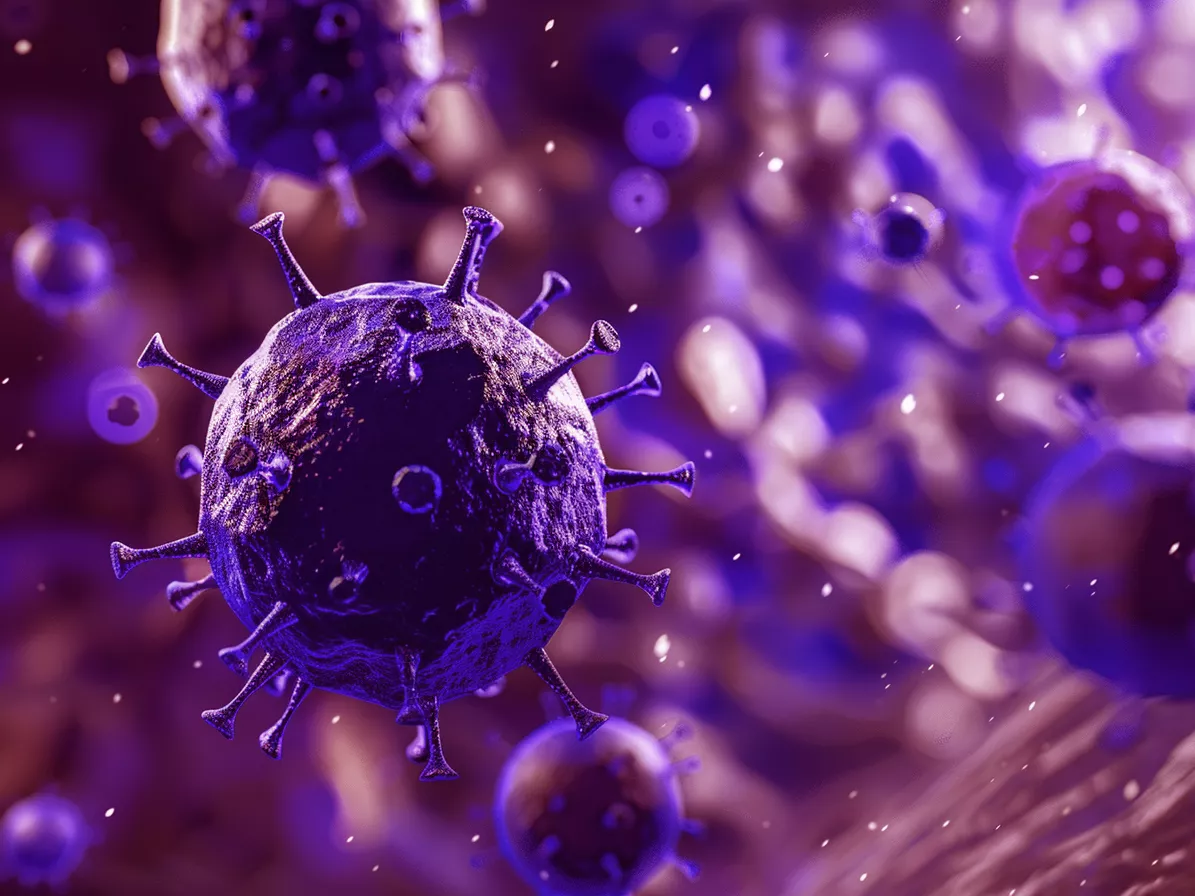Increasing Your Sperm Count: 11 Essential Vitamins and Supplements
3404
Learn how 11 vitamins & supplements can naturally boost sperm count & fertility for a healthier future.

Increasing Your Sperm Count: 11 Essential Vitamins and Supplements
A low sperm count, or oligospermia, can significantly affect male fertility and overall reproductive health. It reduces the likelihood of successful fertilization, making it more challenging for couples to conceive naturally.
This can lead to emotional stress and strain in relationships. Additionally, a low sperm count may signal underlying health issues such as hormonal imbalances, genetic disorders, or infections that require medical attention. In some cases, it may necessitate the use of assisted reproductive technologies, like in vitro fertilization (IVF) to achieve pregnancy.
Addressing low sperm count often involves lifestyle changes, medical treatments, and sometimes long-term management of the associated health conditions.
A sperm count test, or semen analysis, is a diagnostic procedure to evaluate the health and viability of a man's sperm. It is crucial for assessing male fertility and diagnosing potential infertility issues. The main purposes of semen analysis include:
- Fertility Assessment: Determining if sperm count and health are sufficient for fertilizing an egg.
- Vasectomy Effectiveness: Confirming the absence of sperm post-vasectomy.
- Diagnosis of Medical Conditions: Identifying infections, hormonal imbalances, or genetic conditions affecting sperm production.
What is the Sperm Count?
Sperm count is the total number of sperm in a man’s ejaculate. It’s calculated by counting sperm in a sample and multiplying by semen volume. Remember, sperm and semen are different.
Sperm
Sperm cells, or spermatozoa, are male reproductive cells with a head and a tail called a flagellum. They fertilize a female egg during conception.
Semen
Semen, or seminal fluid, is a male reproductive fluid with a whitish colour. It’s ejaculated during sex and helps sustain sperm until reaching the female egg.
Define “Normal” Sperm Count
Sperm count varies based on factors like age and health. According to WHO, it ranges from 39 to 928 million. Oligospermia is a low sperm count per mL of semen.
- Mild oligospermia = 10 to 15 million sperm/mL.
- Moderate oligospermia = 5 to 10 million sperm/mL.
- Severe oligospermia = 0 and 5 million sperm/mL.
If you notice any symptoms, consider getting checked so you can receive proper treatment quickly. The faster you get treatment, the better the results.
Book Your Appointment Today!
Contact us at info.bkk@pulse-clinic.com or chat on your preferred platform:
![]() +66 65 237 1936
+66 65 237 1936  @PULSEClinic
@PULSEClinic ![]() PulseClinic
PulseClinic
Boosting Sperm Count with Vitamins, Minerals, and Supplements
Poor nutrition and oxidative stress can lower your sperm count. Supplements can counter nutritional deficiencies and boost antioxidant levels, safeguarding sperm. The nutrients below can increase sperm count:
Vitamin C
Vitamin C is a crucial antioxidant. Humans can’t produce it like other mammals, so we must obtain it from our diet. Research suggests vitamin C may improve sperm health, including count. In a study, vitamin C doubled sperm count for some. It also boosted sperm motility and reduced deformities.
Vitamin B12
Vitamin B12 is vital for cellular energy. It is crucial for sperm production. Researchers found supplementing with B12 is as effective as antioxidants for supporting a healthy sperm count.
Zinc
Zinc is crucial for men’s health, supporting testosterone, fertility, and muscle growth. Low zinc levels are linked to reduced fertility, poor sperm quality, and a low sperm count. Eating foods like red meat, eggs, and oysters can provide enough zinc, but supplements are an option. Zinc also helps maintain male hormones during intense exercise, supporting fertility and sperm count.
Add us on Line and stay in touch.
Vitamin D
Vitamin D acts as both a vitamin and hormone and impacts various body functions, including male fertility. A 2019 review of 18 studies revealed that higher vitamin D levels are linked with better fertility and sperm count. Given the high prevalence of vitamin D deficiency, it is advisable to get it from food, sunlight, or supplements, especially in colder or cloudy areas.
Folate
Folate is another essential B vitamin for fertility and has been shown in some studies to boost sperm count when supplemented.
CoQ10
CoQ10 is an enzyme and antioxidant that shields sperm from damage like oxidative stress. It is naturally found in seminal fluid, and higher levels are linked to better sperm count and motility. Studies reveal that taking CoQ10 supplements can enhance its presence in semen, thus improving fertility and increasing sperm count. Fertility specialists highly recommend CoQ10 for boosting sperm count, making it a valuable addition to your routine.
Ashwagandha
Ashwagandha is a shrub from India and North Africa used in Ayurvedic medicine for its many benefits. Research suggests it contains compounds like withanolides that may aid fertility. A study showed a significant increase in semen volume, sperm motility, and sperm count with ashwagandha use. Though results may vary, adding an Ashwagandha supplement to your routine could benefit sperm count.
Shilajit
Shilajit is a dense substance made from fossilized plant remains. It is rich in various minerals, especially in our mineral-depleted environment. Research indicates it can enhance testosterone levels and increase sperm counts by up to 64%.
Omega 3 Fatty Acids
Omega-3 fatty acids are vital fats with numerous health advantages. They offer crucial structural support to various cells, including sperm. Research indicates a strong link between omega-3 levels and male fertility.
Lycopene
Lycopene is commonly found in tomatoes and offers more than just colour. Research suggests it may enhance sperm counts by up to 70%. Additionally, several other fruits are known to boost sperm count and motility. Including plenty of tomatoes in your diet or taking a lycopene supplement daily could aid in supporting sperm count and fertility health.
Fish Oil
Omega-3 fatty acids are crucial for male fertility. Besides ensuring sufficient omega-3 intake, maintaining a balanced omega-3 to omega-6 ratio is essential. The simplest method to achieve this balance is by supplementing with omega-3. However, it’s important to note that certain omega-3 fish oil supplements may contain contaminants such as heavy metals or oxidized fats. Hence, not all fish oils are of the same quality.
How Long Should You Take Vitamins to Boost Sperm Count?
Most fertility experts suggest taking supplements for 90 days or longer to get the best result, as sperm usually take 72-90 days to develop.
Although these vitamins and supplements can enhance sperm count, lifestyle factors should also be considered. Fertility is linked to broader health indicators, such as energy levels and body composition. Here are some extra tips that may enhance your reproductive health.
- Limiting alcohol consumption
- Quit smoking
- Exercise regularly
- Relax and get enough sleep
- Consuming foods high in antioxidants
- Consuming healthy fats
If lifestyle changes don’t increase your sperm count, fertility treatments could improve your chances of conceiving. Your healthcare provider may suggest one or more of the following options: antibiotics, Serophene or Clomid, Gonal-F RFF Redi-ject, Choragon, Femara, intrauterine insemination, or in vitro fertilization (IVF).
Book Your Appointment Today!
Contact us at info.bkk@pulse-clinic.com or chat on your preferred platform:
![]() +66 65 237 1936
+66 65 237 1936  @PULSEClinic
@PULSEClinic ![]() PulseClinic
PulseClinic
Trust PULSE CLINIC to take care of your health like other 45000 people from over 130 countries. We provide discreet professional service with high privacy. Here to help, not to judge.
Loading...
Clinic Locations
Loading...
















